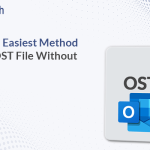In the ever-evolving digital landscape, online businesses are constantly seeking innovative tools to enhance their operations and achieve sustainable growth. The right software can streamline processes, boost productivity, and empower businesses to deliver exceptional customer experiences. As we venture into 2024, let’s explore the top 5 software solutions that can revolutionize your online business strategy.
5 Best Software For Online Business in 2024
1. Shopify
Shopify is a renowned e-commerce platform that empowers businesses of all sizes to create, manage, and grow their online stores. Its user-friendly interface, extensive customization options, and robust scalability make it an ideal choice for entrepreneurs seeking to establish a strong online presence. With Shopify, you can easily manage your product catalog, process payments securely, and optimize your store for search engines.
2. HubSpot
HubSpot is a comprehensive CRM (Customer Relationship Management) platform that provides a centralized hub for managing all aspects of your business interactions with customers. From marketing automation to sales pipeline management, HubSpot helps you nurture leads, convert prospects into loyal customers, and foster long-lasting relationships.
3. Canva
Canva is a graphic design platform that empowers businesses to create stunning visual content without any prior design experience. Its drag-and-drop interface, vast library of templates, and user-friendly editing tools make it easy to design professional-looking graphics for social media, marketing materials, and presentations.
4. Trello
Trello is a popular project management tool that helps teams organize and track their tasks effectively. Its visual board layout, customizable workflows, and real-time collaboration features make it an ideal solution for managing projects of all sizes. With Trello, you can easily assign tasks, monitor progress, and collaborate seamlessly with team members.
5. QuickBooks
QuickBooks is a cloud-based accounting software that simplifies financial management for small businesses. Its intuitive interface, comprehensive accounting features, and seamless integration with other business tools make it a valuable asset for managing finances effectively. QuickBooks helps you track income and expenses, generate reports, and maintain accurate financial records.
FAQs
Q. What are the key factors to consider when choosing software for my online business?
A. When selecting software for your online business, consider factors such as:
- Your specific business needs and goals: Identify the areas where software can add the most value to your operations.
- Ease of use and accessibility: Ensure the software is user-friendly and accessible to your team members.
- Scalability and growth potential: Choose software that can accommodate your business growth as it expands.
- Integration capabilities: Assess the software’s ability to integrate with other business tools you use.
- Pricing and affordability: Evaluate the software’s cost-effectiveness and choose a plan that aligns with your budget.
Q. How can I effectively implement software into my online business?
A. To ensure successful software implementation in your online business:
- Define clear goals and objectives: Establish specific goals for each software implementation to measure its effectiveness.
- Train your team: Provide comprehensive training to your team members on the software’s features and functionalities.
- Establish change management processes: Prepare for potential changes and disruptions caused by software implementation.
- Monitor and evaluate progress: Regularly track the software’s impact on your business operations and make adjustments as needed.
Q. What are the potential benefits of using software for my online business?
A. Integrating software into your online business can offer numerous benefits, including:
- Increased efficiency and productivity: Automate repetitive tasks and streamline workflows, freeing up time for strategic initiatives.
- Improved customer experience: Enhance customer interactions and provide personalized experiences through data insights.
- Enhanced data-driven decision-making: Leverage data analytics to gain insights into customer behavior and make informed business decisions.
- Reduced costs and improved profitability: Optimize resource allocation and reduce operational expenses.
- Enhanced collaboration and communication: Facilitate seamless teamwork and improve communication across departments.
Conclusion
As the digital landscape continues to evolve, software plays an increasingly crucial role in the success of online businesses. By leveraging the right software solutions, businesses can streamline operations, enhance productivity, and deliver exceptional customer experiences. The five software solutions highlighted in this article – Shopify, HubSpot, Canva, Trello, and QuickBooks – represent a powerful toolkit for online businesses of all sizes, empowering them to navigate the dynamic digital world and achieve sustainable growth in 2024 and beyond.


